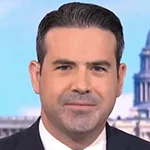The Obama administration is a major source of frustration for journalists stymied by politically driven suppression of news and information about federal agencies, a coalition of journalism groups wrote in a letter to the president on July 8.
 The consortium, including the Society of Professional Journalists, American Society of News Editors and Reporters Without Borders, among others, said public affairs staffs at government agencies are part of the problem. "Over the past two decades, public agencies have increasingly prohibited staff from communicating with journalists unless they go through public affairs offices or through political appointees," they wrote. "We consider these restrictions a form of censorship -- an attempt to control what the public is allowed to see and hear."
The consortium, including the Society of Professional Journalists, American Society of News Editors and Reporters Without Borders, among others, said public affairs staffs at government agencies are part of the problem. "Over the past two decades, public agencies have increasingly prohibited staff from communicating with journalists unless they go through public affairs offices or through political appointees," they wrote. "We consider these restrictions a form of censorship -- an attempt to control what the public is allowed to see and hear."
The journalists, who want a White House directive telling federal agencies that they're free to answer questions from reporters and the public, said most federal agencies prohibit employees from interacting with the press unless staffers have PR pros sitting in the conversations, or contact is often blocked completely.
Even when PA staffers engage reporters, the groups note, they do so confidentially in spite of having the "spokesperson" title.
"The president pledged to be the most transparent in history. He can start by ending these practices now," said David Cuillier, president of the SPJ.
Journalists are also frustrated by requests for questions in advance of interviews, delays that stretch beyond deadlines, and on-background briefings with unnamed offices who speak not-for-attribution.
The groups say the trend has intensified with the Bush administration through the current Obama administration. They note agency personnel are free to speak to lobbyists, special-interest representatives and people with money without the restrictions placed on reporters and without any public oversight.
In one of three key examples provided, a Reuters journalist spent more than a month trying to get Environmental Protection Agency PA staff to approve him talking to an agency scientist about climate change. After getting no response from EPA PA staff and a supervisor, the reporter finally made contact through EPA's chief of staff.
Thirty-eight journalism and open government groups signed the letter.


 Maggie Moran, who is well-connected in New Jersey and New York Democratic politics, has established Moxie Strategies in Asbury Park, NJ.
Maggie Moran, who is well-connected in New Jersey and New York Democratic politics, has established Moxie Strategies in Asbury Park, NJ. Husch Blackwell Strategies has added FleishmanHillard alum Michael Slatin as a principal in its public affairs group.
Husch Blackwell Strategies has added FleishmanHillard alum Michael Slatin as a principal in its public affairs group. Rory Cooper, a veteran Republican operative and policy specialist, has joined Teneo’s Washington office as senior managing director in its strategy & communications practice.
Rory Cooper, a veteran Republican operative and policy specialist, has joined Teneo’s Washington office as senior managing director in its strategy & communications practice. Brian Fallon, who served as national press secretary for Hillary Clinton’s 2016 presidential run, is signing on next month as Vice President’s Kamala Harris’ campaign communications director.
Brian Fallon, who served as national press secretary for Hillary Clinton’s 2016 presidential run, is signing on next month as Vice President’s Kamala Harris’ campaign communications director. TikTok is nothing more than a Chinese propaganda tool that poses “a grave threat to America’s national security and, in particular, impressionable children and young adults,” say two Congressmen who want the platform registered as a foreign agent.
TikTok is nothing more than a Chinese propaganda tool that poses “a grave threat to America’s national security and, in particular, impressionable children and young adults,” say two Congressmen who want the platform registered as a foreign agent.


 Have a comment? Send it to
Have a comment? Send it to 
No comments have been submitted for this story yet.